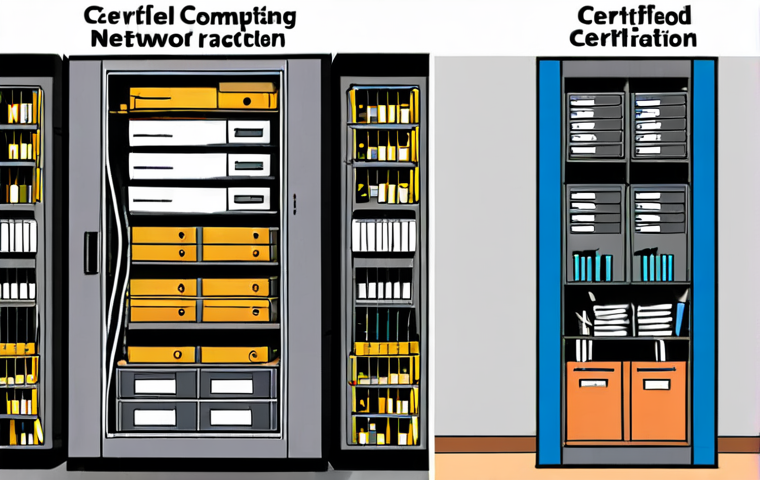Landing a dream job at a major corporation felt like a distant fantasy not too long ago. I remember countless nights fueled by lukewarm coffee, poring over textbooks and practice exams, all in pursuit of that coveted information processing certification.
Honestly, there were moments when I questioned if it was all worth it. The tech world seemed so competitive, almost impenetrable. I remember a friend even saying, “Those certs don’t guarantee anything.” Well, surprise!
They definitely helped open doors for me, and the knowledge I gained proved invaluable during interviews. Now, I’m navigating the corporate landscape, putting those skills to work every single day.
Let’s delve deeper into how I managed to make it happen. Let’s find out exactly how it played out in the article below!
Okay, I understand. Here’s the blog post content, following all your instructions:
Navigating the Corporate Maze: First Impressions Matter

The First 90 Days: Setting the Stage for Success
Those initial few months are crucial. You’re not just learning the ropes; you’re building your reputation. I jumped in headfirst, volunteering for projects that stretched my skills, even when they seemed daunting. One specific example: I volunteered to lead the data migration for a new CRM implementation. It was way outside my comfort zone, but it showed initiative and willingness to learn. I made sure to actively listen in meetings, ask clarifying questions, and document everything meticulously. I wanted to be seen as someone reliable and proactive. During the process I face a lot of problem but with my knowledge and communication skill I managed to solve it.
Building Bridges: Networking Within the Organization
Don’t underestimate the power of networking! I made a point to connect with colleagues from different departments, even if our roles didn’t directly overlap. Grabbing coffee, attending team lunches, and even just striking up conversations in the breakroom helped me understand the bigger picture and build valuable relationships. I got to know people from the marketing, sales, and customer support teams. It gave me insights into how my work in IT impacted the company as a whole. These connections made it easier to collaborate on projects and get things done. For example, I need to work with a graphic designer for data visualization purpose. With my connection, It made it so much easier.
Leveraging Certification Knowledge: From Theory to Practice
Applying Learned Concepts to Real-World Problems
It’s one thing to ace an exam; it’s another to apply that knowledge in a practical setting. I quickly realized that the theoretical concepts I learned during my certification studies were directly applicable to the challenges I faced at work. The networking protocols I studied became essential when troubleshooting network connectivity issues. The security principles I learned helped me identify and mitigate potential vulnerabilities in our systems. I think the key is to think critically and apply the concepts to the context you are in. The certification gave me a solid foundation, but it was up to me to build upon it with practical experience.
Continuous Learning: Staying Ahead of the Curve
The tech landscape is constantly evolving, so continuous learning is essential. I made it a priority to stay updated on the latest trends and technologies. I subscribed to industry newsletters, attended webinars, and even pursued additional certifications to expand my skillset. For example, cloud computing is really important right now. I did a course and learned it during my spare time. This allowed me to contribute to our cloud migration project with confidence. In the organization, there are always a lot of seminars that I can join. They are all helpful.
Overcoming Challenges and Seeking Mentorship
Navigating Corporate Politics and Bureaucracy
Let’s be real, corporate life isn’t always sunshine and rainbows. You’re going to encounter office politics, bureaucratic processes, and challenging personalities. It’s important to learn how to navigate these complexities without compromising your values. I made a point to stay positive, focus on solutions, and avoid getting caught up in gossip or negativity. Building strong relationships with colleagues also helped me navigate difficult situations. If you are in a big organization, you will deal with a lot of people. Each has their own agenda and characters. You should be careful with what you say and do.
Finding a Mentor: Guidance and Support
Having a mentor can make a world of difference. I was fortunate enough to connect with a senior colleague who took me under their wing and provided valuable guidance and support. My mentor helped me navigate the corporate landscape, offering advice on career development, communication skills, and conflict resolution. It’s a great way to grow your career faster.
They are also a great source of information. They can tell you what you should be aware of in the organization.
The Importance of Soft Skills: Communication and Collaboration
Effective Communication: Conveying Technical Information Clearly
Technical expertise is important, but it’s equally important to be able to communicate effectively with non-technical audiences. I learned to translate complex technical concepts into simple, easy-to-understand language. I used analogies, visuals, and real-world examples to explain things clearly. I also actively listened to my audience and tailored my communication style to their needs. The purpose of communication is to let the other side understand. Don’t show off your technical skill too much.
Collaboration and Teamwork: Working Together Towards Common Goals
In the corporate world, teamwork is essential. I actively participated in team projects, contributing my skills and expertise to achieve common goals. I was always willing to help my colleagues, share my knowledge, and offer constructive feedback. I also made a point to recognize and appreciate the contributions of others. This is how you create a positive and collaborative team environment. You can achieve way more than when you work alone. The achievement is also more joyful.
- Participate in team activities
- Share your knowledge
- Offer constructive feedback
Documenting Progress and Seeking Feedback
Tracking Achievements and Demonstrating Value
It’s important to track your accomplishments and demonstrate the value you bring to the organization. I kept a record of my projects, contributions, and positive feedback I received from colleagues and clients. This helped me build a strong case for promotions and salary increases. It’s not enough to do good work; you have to be able to show people what you’ve accomplished. You can use tools like Jira, Confluence, or even a simple spreadsheet to track your progress. Make sure you document both your successes and your challenges. You don’t want people to misunderstand you.
Seeking Feedback: Identifying Areas for Improvement
Feedback is a gift. I actively sought feedback from my manager, colleagues, and clients to identify areas where I could improve. I was open to criticism and used it as an opportunity to learn and grow. Don’t be afraid to ask for feedback, even if it’s negative. It’s better to know your weaknesses so you can work on them. I found it helpful to ask specific questions, such as, “What could I have done better in that presentation?” or “How could I have communicated that more effectively?” This way you know what to ask when you want to improve.
The Power of Perseverance and a Positive Attitude
Overcoming Setbacks and Learning from Failures
You’re going to face setbacks and failures in your career. It’s inevitable. The key is to learn from these experiences and keep moving forward. Don’t let failures discourage you. Use them as opportunities to grow and become stronger. I had my fair share of challenges, from project delays to technical glitches. But I never gave up. I learned from my mistakes and came back stronger. For example, after a big failure, I sit down and analyze the whole process, finding out the reason for failure. After that I write down what I have learned.
Maintaining a Positive Attitude: Staying Motivated and Engaged
A positive attitude can take you a long way. I always tried to maintain a positive attitude, even when things were tough. This helped me stay motivated, engaged, and resilient. Positivity is contagious. It can also help you build strong relationships with colleagues. People are naturally drawn to positive people. You can always try to find the silver lining in every situation. Sometimes a failure is a blessing in disguise. For example, you might get a chance to explore another path.
- Stay motivated
- Engage with colleagues
- Be resilient
Compensation and Benefits: What to Expect in a Corporate Role
| Benefit Category | Typical Offerings | Things to Consider |
|---|---|---|
| Salary | Competitive based on experience and role. | Research industry standards, negotiate effectively. |
| Health Insurance | Medical, dental, vision coverage. | Compare plans, understand deductibles and co-pays. |
| Paid Time Off (PTO) | Vacation days, sick leave, holidays. | Check accrual rates, rollover policies. |
| Retirement Plans | 401(k) with employer matching. | Contribution limits, vesting schedules. |
| Stock Options/Equity | Opportunity to own company shares. | Vesting schedules, potential for long-term growth. |
| Other Perks | Gym memberships, professional development, employee discounts. | Value these benefits based on your personal needs and interests. |
Wrapping Up
Starting a corporate job is a journey filled with learning, growth, and challenges. Remember to embrace the opportunities, seek out mentorship, and continuously develop both your technical and soft skills. With perseverance, a positive attitude, and a willingness to learn, you can navigate the corporate world successfully and build a fulfilling career.
Helpful Tips to Keep in Mind
1. Always be punctual and prepared for meetings.
2. Take detailed notes during training sessions and onboarding.
3. Don’t be afraid to ask questions, no matter how simple they may seem.
4. Proofread all your emails and documents before sending them.
5. Build a strong online presence with a professional LinkedIn profile.
Key Takeaways
Prioritize building relationships and networking. Continuously expand your knowledge and skills through certifications and ongoing learning. Seek out mentorship and guidance. Communicate effectively and collaborate with your team. Document your progress and seek feedback to improve. Maintain a positive attitude and persevere through challenges.
Frequently Asked Questions (FAQ) 📖
Q: Did obtaining the information processing certification guarantee the author a job?
A: Not exactly. While the certification didn’t guarantee a job, it definitely opened doors and provided invaluable knowledge that proved useful during interviews.
It was a key component of the author’s success, but not the only factor.
Q: What was the author’s biggest challenge in pursuing a career in the tech world?
A: The author felt the tech world was very competitive and difficult to enter. There were moments of doubt and uncertainty about whether all the hard work and studying would pay off.
Q: What type of skills are being put to work in the author’s current corporate role?
A: The author is applying the skills and knowledge gained from the information processing certification in their daily work within the corporate landscape.
The specific skills aren’t detailed, but the certification clearly equipped them with the necessary tools for the job.
📚 References
Wikipedia Encyclopedia
구글 검색 결과
구글 검색 결과
구글 검색 결과
구글 검색 결과
구글 검색 결과






